NRI
NRI Newsmakers of 2017
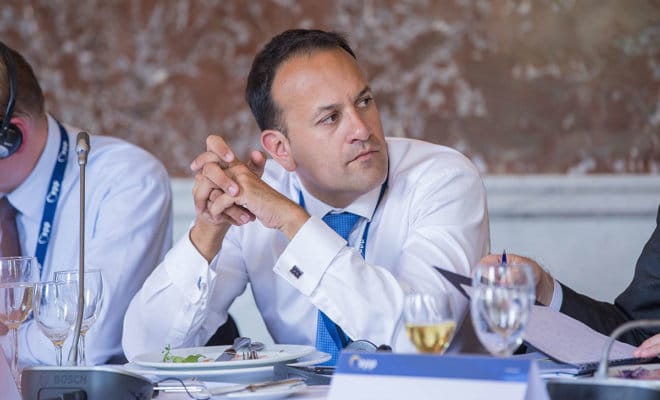
Irish Prime Minister Leo Vadarkar at the European People's Party Summit in Brussels, June 2017.
Photo: European People's Party
Overseas Indian politicians, a flash-in-the-pan billionaire and a murdered techie were among the biggest newsmakers of 2017.
Overseas Indian politicians came of age in 2017.
Leo Varadkar rose to become the first prime minister of Indian origin in Ireland. Jagmeet Singh will face off against Prime Minister Justin Trudeau as head of one Canada’s leading political party in the 2019 elections and Nikki Haley, the U.S. ambassador to the United Nations, is roiling the waters of an otherwise staid institution.
Little India recaps five of the most newsworthy NRIs of the past year.
Leo Varadkar
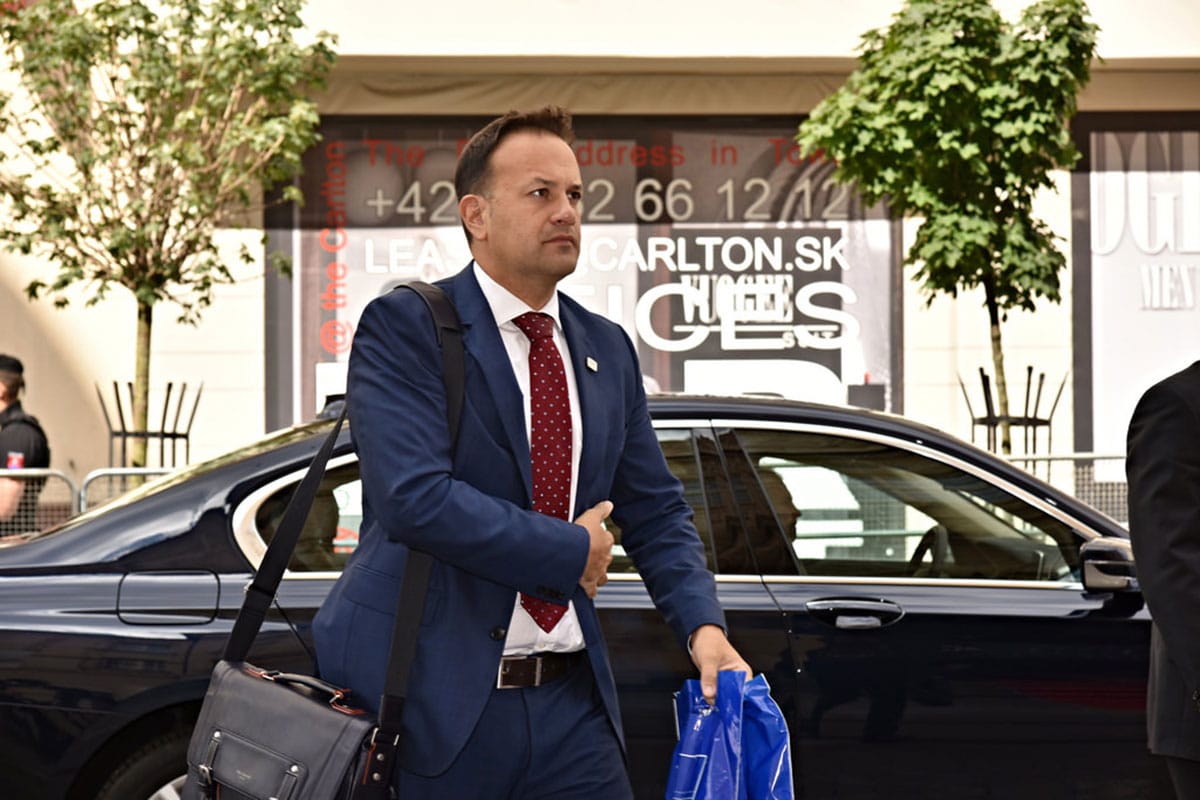
Leo Vadarkar: “I’m not a half-Indian politician, or a doctor politician or a gay politician for that matter. It’s just part of who I am, it doesn’t define me, it is part of my character I suppose.”
Leo Varadkar became the first Irish prime minister (taoiseach) of Indian origin. Varadkar took over as taoiseach of Ireland on Jun. 15, 2017 after he won the race for the leadership of Fine Gael — the biggest party in the country’s ruling coalition.
The 38-year-old openly gay politician replaced outgoing Taoiseach Enda Kenny to become Ireland’s youngest leader.
Varadkar’s father Ashok, who hails from Mumbai, met his Irish mother Miriam while they both worked at an English hospital in Slough in the 1960s.
A doctor educated at Trinity College in Dublin, Varadkar entered Irish electoral politics in 2004, when he was elected to the Fingal County Council. Three years later, he was elected to represent the area in parliament.
In 2011 he was appointed minister of transport, tourism and sport; in 2014 as minister for health, and in 2016 as minister for social protection.
In a radio interview in 2015, Varadkar addressed his gay and Indian identity: “It’s not something that defines me. I’m not a half-Indian politician, or a doctor politician or a gay politician for that matter. It’s just part of who I am, it doesn’t define me, it is part of my character I suppose.”
Jagmeet Singh
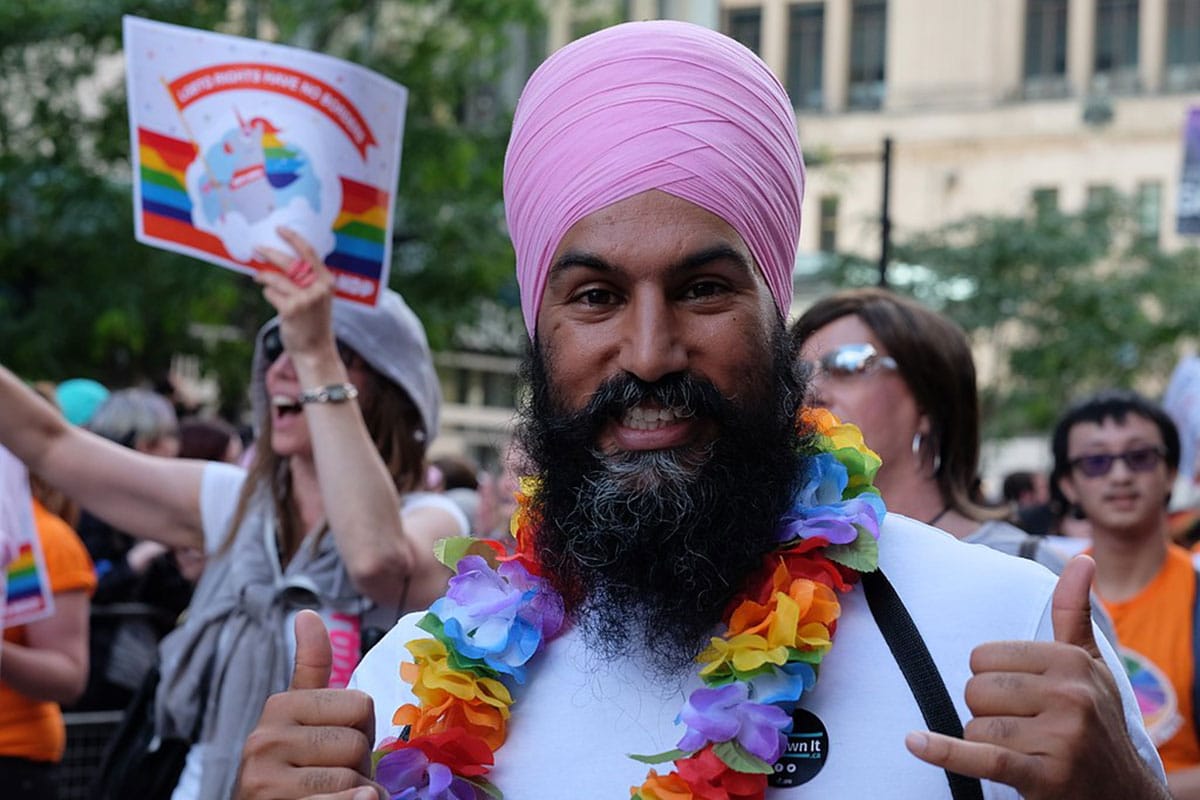
Jagmeet Singh is poised to lead the New Democratic Party against Canadian Prime Minister Justin Trudeau in the next federal elections. Photo: Ideas dept of Flickr
Jagmeet Singh Dhaliwal, a 38-year-old criminal defense lawyer from Canada, came from behind to become the first minority, as well as the first person of Indian and Sikh heritage, to be elected leader of one Canada’s three largest national political parties. He is poised to lead the New Democratic Party against Canadian Prime Minister Justin Trudeau in the next federal elections scheduled in October 2019.
Singh has positioned himself as a progressive, social democrat, advocating a $15 minimum wage, decriminalization of drug possession and a progressive tax system that taxes the rich more heavily to pay for social services.
“Canadians deserve a government that understands the struggles that people are facing right now. Most importantly, Canadians deserve a government that gets the job done. That’s why today I’m officially launching my campaign to be the next prime minister of Canada,” he announced in his acceptance speech in October.
Singh is person non-granta in India and was denied a travel visa to India in December 2013, a rarity for an foreign elected official. India’s Toronto Consul General told the Globe & Mail at the time, “Anyone indulging in, directly or indirectly, attacking India’s sovereignty and territorial integrity is not welcome to India.” Singh moved an unsuccessful resolution in the Ontario Assembly in 2016 to declare the 1984 anti-Sikh riots a “genocide” and denounced the Indian government for his visa denial “as a form of silencing its critics.”
Nikki Haley

U.S. Ambassador to the United Nations Nikki Haley is widely tipped as the front runner to replace Secretary of State Rex Tillerson when he steps down.
Nikki Haley, the Indian American governor of South Carolina, was tapped by Pres. Donald Trump as his surprise choice for U.S. Ambassador to the United Nations. She had been exceedingly critical of Trump during the Republican primaries, but has become something of his whisperer with hardline positions at the United Nations.
After Trump announced U.S. plans to move its Israeli embassy to Jerusalem, Haley developed a global reputation as a U.N. scold, threatening countries that voted against the United States: “As you consider your vote, I encourage you to know the president and the US take this vote personally. The president will be watching this vote carefully and has requested I report back on those who voted against us”.
Ignoring her threats, the United Nations General Assembly voted overwhelmingly to condemn the U.S. action as did the U.N. Security Council, whose resolution was only blocked by a U.S. veto.
The 45-year-old was born to Sikh immigrant parents from Punjab. She was elected governor of South Carolina in November 2010 and reelected in 2014. In a 2010 Newsweek interview, Haley spoke to her Indian roots: “The fact that I happen to be an Indian female, of course that brings a new dynamic. But what I hope it does is cause a conversation in this state where we no longer live by layers, but we live by philosophies.”
Haley is tipped as front runner to replace Secretary of State Rex Tillerson on his expected departure in 2018.
Rishi Shah
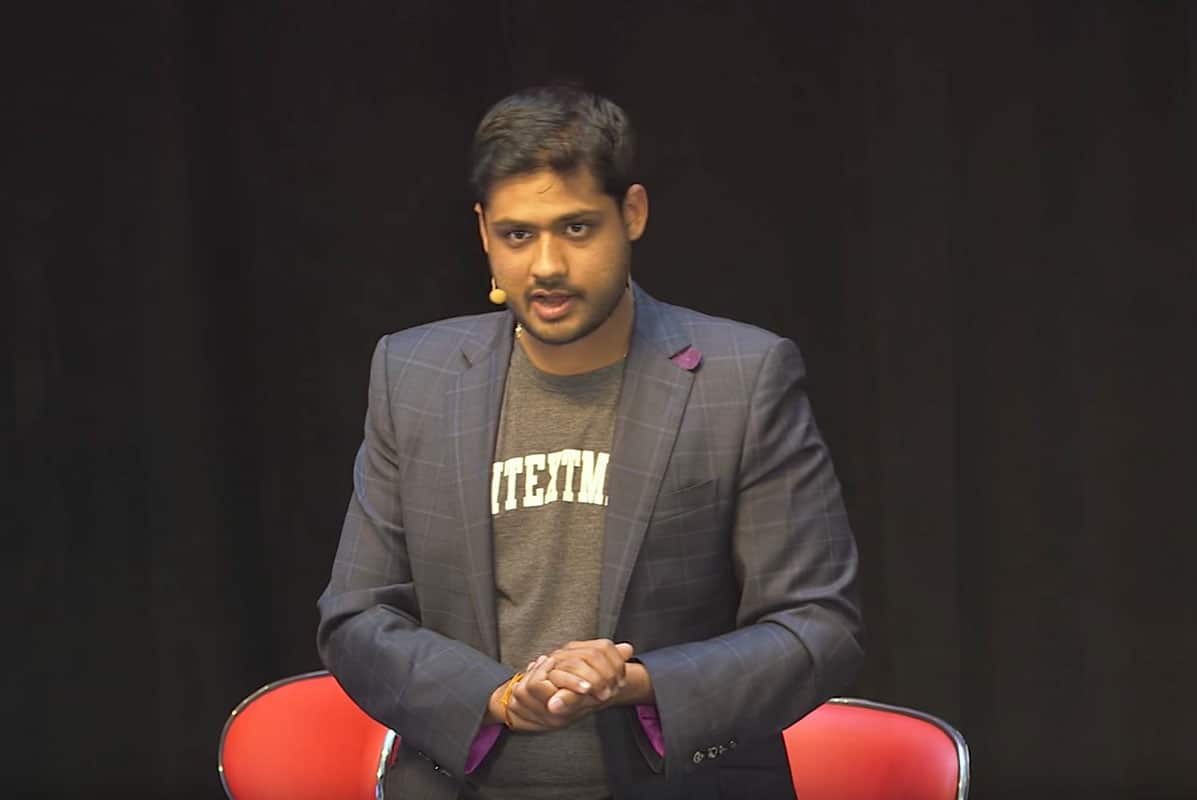
For a few tantalizing weeks, Outcome Health CEO Rishi Shah became the richest Indian American with a personal fortune of $3.6 billion.
Rishi Shah, a 31-year-old college dropout, who co-founded a healthcare media company, became the richest Indian in America with a personal worth of $3.6 billion, for all of a few weeks. His fortune evaporated almost overnight amidst allegations that his company had fudged data and misled advertisers.
Shah’s Chicago-based Outcome Health delivers pharmaceutical advertising to patients on tablets and screens placed in physician’s offices. He became the 206th richest American in the Forbes 400 list after his company raised $500 million based on a valuation of $5 billion in May from Goldman Sachs, Google’s parent Alphabet and the Pritzker Group Venture Capital.
Shah, the son of a physician, founded ContextMedia in 2006 with a fellow student at Northwestern University, which later morphed into Outcome Health.
The Wall Street Journal alleged that the company exaggerated the number of screens installed in physician offices, inflated data on ad performance and manipulated third-party analyses showing the effectiveness of its ads.
Shah and Outcome Health are now being sued by investors, several premium advertisers have fled, the company has laid off a third of its workforce and abandoned its lease of a premium downtown Chicago building for its new headquarters. However, John Eddy, an Outcome Health spokesperson, claimed that: “Most of the company’s advertisers (including the largest) remain active.”
The Chicago Sun Times reported in November, “When a private detective tried to hand Chicago’s newest billionaire CEO Rishi Shah a summons to face a lawsuit filed in New York alleging he misled investors — Shah ran away and jumped in a waiting Cadillac Escalade and shut the door.” Davidson Goldin, a spokesman for Shah, disputed that characterization, blaming it on a misunderstanding: “Rishi was not aware the person banging on the door was trying to serve papers.”
Srinivas Kuchibhotla
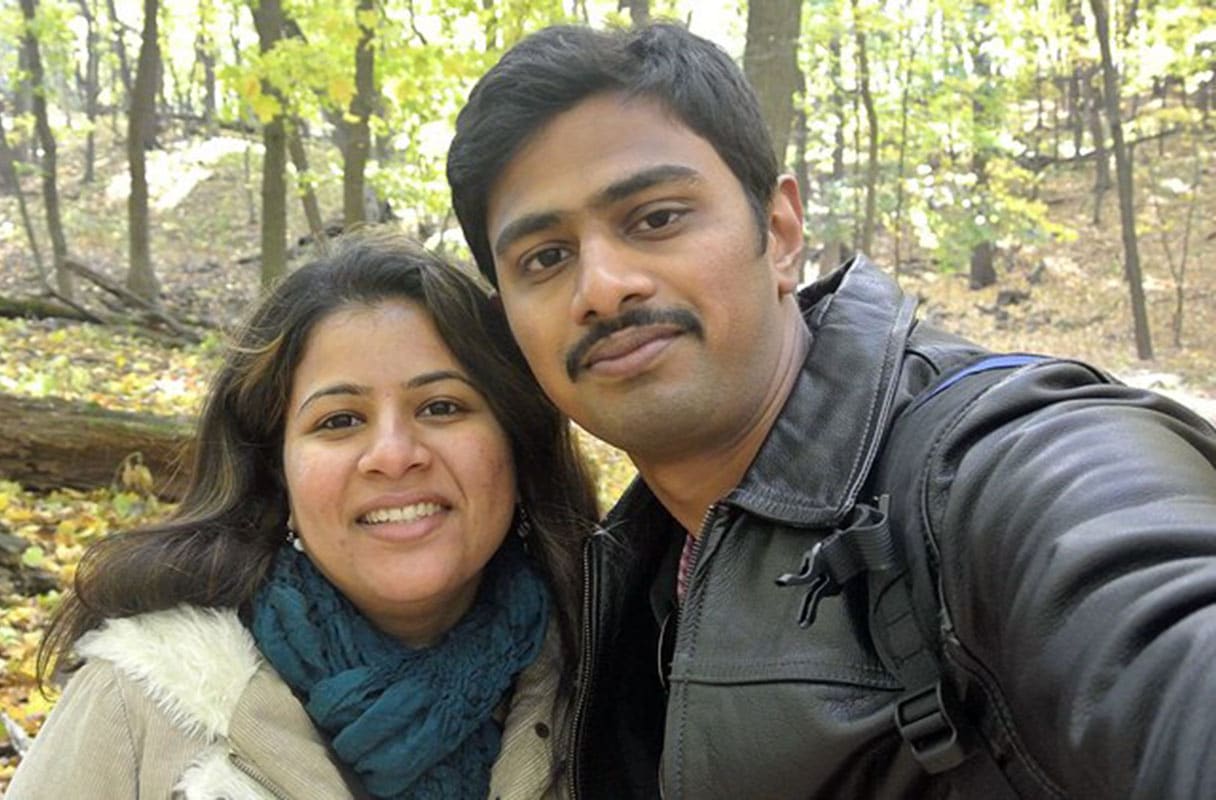
Srinivas Kuchibhotla’s hate-motivated killing became a rallying cry for immigrant rights and multicultural advocates. Photo: Srinivas Kuchibhotla/Facebook
On a cold February night last year, a man with a semiautomatic pistol confronted and shot two Indian engineers in a bar in Olathe, Kansas, after screaming racial slurs “Get out of my country” and “terrorist,” killing Srinivas Kuchibhotla and wounding his friend, Alok Madasani.
Kuchibhotla’s death quickly came to symbolize the aftermath of the victorious xenophobic and racially-tinged campaign of Donald Trump, representing, as the New York Times wrote, “part of a spasm of hatred that seems to be uncoiling in small towns and big cities across the nation — and in rising numbers.”
His death shattered the complacency among Indian Americans, widely celebrated as a successful model minority, about their security and future in the United States. He also became a rallying cry for immigrant rights and multicultural advocates, who held scores of vigils and solidarity marches across the country.
In the aftermath of the murder, inequities in America’s immigration system were highlighted after his widow Sunayana Dumala faced deportation as she was on a H4 dependent visa, which lapsed upon the death of her husband. Following the intervention of Republican Congressman Kevin Yoder, she received a one year reprieve and Yoder is also working on a bill to reduce the massive backlog confronting nearly one million immigrants still awaiting their green cards.
Dumala has come to symbolize the public face of immigrant grief and multicultural resolve. As she wondered aloud at a rare public forum, “Do we belong? This was really a question I had.” She has been touched by the outpouring of support, as well as the kindness and generosity of neighbors and strangers alike. “This is what America stands for,” she says. “We are one people. We might be different cultures or races or ethnicities, but we should put energy into embracing our differences.”
The article has been updated on Jan 3, 2018, to include responses from Outcome Health.

1 Comment
You must be logged in to post a comment Login